“Burn, damn you!” For a moment, the men near Rufinus Victor almost expected the massive siege tower to burst into flames. Not even fate dared disobey the great General, what chance had a pile of wood?
The tower did not burn though. Two detachments of archers were pouring flaming arrows into it from either side, but the Celts seemed to have covered this one with wet hides. It simply would not catch fire. As Rufinus watched the siege engine, he began to slowly count backwards… 7, 6, 5, 4…
One of his personal guard looked at him quizzically.
…3, 2, 1…
The drawbridge on the siege engine slammed down and a swarm Celts wielding huge two-handed blades stormed onto the city walls. Rufinus sighed. “Now,” he said, casually shaking his head, “this will take all afternoon.”
They were brave, Rufinus would give them that, but they were barbarians. They outnumbered his men nearly three to one, were attacking the city walls from two directions, and had siege towers and ladders moving towards more sections of wall than he had men to hold them. But they were barbarians, and barbarians were predictable.
A runner came from the south gate. “Sir, the Captain of the Second Cohort reports that the southern ram has been set alight and that the Plumbatarii are holding strongly.” Rufinus nodded and dismissed him. Both rams and one of the two siege towers had been set alight by his archers.
He was thankful for that. Had they broken down one of the gates and spilled into the streets, the fight would have lasted into the evening as well. That would have delayed his bath.
Rufinus had been fighting barbarians for decades. He had won countless battles against overwhelming numbers of the enemy. They didn’t die like ordinary men though, they died far easier.
When Andragathius Flavius had become Emperor, Rufinus had been hunting the last of the Huns in Saxon lands, south of Campus Frisii. He had been recalled and sent west to protect Samarobriva from a large Celtic force that had landed nearby. He had been looking forward to that fight, but it never came. Only days before he arrived, the Celts had disappeared. His scouts had scoured the forests for them, suspecting an ambush, but no sign of them was ever found. The Admiral in charge of the channel fleet claimed that no ship had been seen to take the army away, but Rufinus knew well how outmatched Roman ships were in those waters. Half the Celtic homeland could have walked from Britannia to Belgica over a bridge of boats and the Admiral would probably claim that nothing had occurred.
He had been ordered to remain in Gaul and supervise the organization of Legio I Italica, but that was a job for clerks. The Celts had returned to Britannia, and where barbarians went, Rufinus followed. With nothing more than the occasional Saxon raid to contend with on the Gallic frontier, Rufinus set his men to the construction of a more formidable fleet to secure the waters and transport his army north.
It had taken time, but in the summer of 423 the new Roman fleet had swept the channel clean of barbarian raiders and Rufinus and his men had crossed. They found Londinium besieged by a small force of Celts being led by a chieftan named Ciniod. When Rufinus’ force appeared, the Celts had abandoned their siege engines and fled west. He had caught them a short ways away at a river ford.
They must have thought themselves clever for defending such a choke point. Too bad they hadn’t noticed a second ford only a short distance to the east. Rufinus had sent half his cohorts across the river there and had crushed them with simultaneous attacks from two directions.
He had then marched north on his own initiative to take Eburacum. That city had been lost to the Empire generations ago, it was time they started paying their taxes again. Taking the walls had been a simple affair; the usual ladders at midnight trick always caught barbarians off guard.
Only weeks later, news arrived from Gaul that a small bandit raiding party near Colonia Agrippina had been destroyed by Legio I Italica. Upon closer inspection, it had turned out to be the last “King” of the Huns and a handful of starved vagabonds.
The garrison had left their corpses for the vultures. It bothered Rufinus not one bit. He knew that barbarians like the Huns were little more than dangerous animals. Cull their numbers and maim them and they will all turn into cowardly scavengers. Yes, they were animals. Rufinus liked hunting animals almost as much as he liked a good bath.
It was then that the phantom Celtic army had reappeared… at the gates of Eburacum. They had brought friends as well. A small group of Foederati had been sent north as reinforcements by Aurelianus Donatus, but they had been caught in the field and massacred. And so the assault had come from west and south.
Rufinus had gambled on his archers and Celtic ignorance. He did not have enough men to defend all threatened points, so he left the gates unguarded and ignored the landing sites of the siege towers. Two cohorts were placed to repel the entire southern attack with the rest dispersed to meet the ladders coming towards the western walls. As a reserve, the two detachments of Sarmatian Cavalry had been placed in the city square, where they could quickly move towards any threat that managed to reach the streets.
Everything had gone as planned, except for that second siege tower. It had disembarked men in an area only held by archers. The Eighth Cohort was nearby, but they were occupied fighting off one of the Celtic ladder groups.
“Runner!” Rufinus bellowed. A lightly armored soldier stepped forward. “Tell the Fifth Cohort to leave the northernmost section of wall and report to the gatehouse immediately!” The man ran off into along the wall.
Rufinus gazed back up at the wall. The archers were fighting bravely, but they were unarmored and their daggers were of little use against the massive blades being thrown against them. In no time at all, two-thirds of them were down. It would be only moments before the last of them broke and the Celts took the tower behind them, giving them access to the streets below.
Whoever was currently leading the nearby Eighth Cohort saw the threat as well. With a momentary lull in the Celts storming up the ladders to their section of the wall, the men moved as one to take the Celts from behind. They fought desperately to break through the rear of the barbarian infantry, eventually succeeding in drawing off their foes from the remaining archers.
“Get them off the walls!” Rufinus shouted, gesturing to the archers. “Pull all archer detachments back to the main square, this is no place for them now.” Men rushed to comply as a massive of heavily armored men arrived from the north.
“Sir! Fifth Cohort reporting as ordered sir!”
“Up those walls soldier,” Rufinus commanded, “use the gatehouse stairs and then take them from behind!” Orders were shouted and men began to crowd into the narrow passageway.
Rufinus looked back up at the wall. The Eighth Cohort was finishing off the last of the Celts from the siege tower, but dozens more were coming up the now undefended ladders behind them. The Eighth had save the tower, but only temporarily. There were only about 50 men still standing and it would not take long before the Celtic masses overwhelmed them. The tower on the other side of the wall had already been occupied, but it did not have access to the street and all of its windows faced outwards. It’s loss mattered little to the scope of the battle.
The first men of the Fifth were now arriving on the wall, but there were easily a hundred Celts between them and the Eighth, with more pouring up the ladders every minute. This would not do.
“Runner!” Rufinus bellowed again. Another man in light armor appeared. “Bring the cavalry up here immediately!”
The minutes crept by and men died. Only a third of the Eighth was still standing when the Sarmatians reached the western gate. “Sally and sweep them from the ladders.”
The doors of the city creaked open and a hundred heavily armed horsemen poured forth to wreak bloody terror amongst the scaling parties.
With the enemy scattered and disorganized, the cavalry rode unopposed wherever they went, sowing panic and confusion. The men who had yet to climb broke and ran, while those already on the walls died to the last, their fear making them ineffective against the cohorts. As the last of the fighting in front of the siege tower subsided, Rufinus could see that only two dozen of the men from the Eighth had survived, the wall itself a mass of dead and dying.
“Steward, get those men down and tend to them. Collect all the belongings of any Celt who fell on that wall or below it and split it amongst them.” Rufinus glanced back at the city. Now that the battle was over, the usual administrative duties would have to be tended to. He hated governance. Perhaps he would send for Attalus Commodus to supervise the city; that man actually seemed to like it. That was a decision for later though. He grabbed a nearby legionary. “Soldier, go tell my steward to heat some water and bring me my tub, the bronze one.”
The man looked at him in astonishment, “I don’t know sir… it’s… it’s…”
Rufinus stared at him, “What is it soldier?”
“It’s still pretty hairy out there… it’s a Celtic city…”
“Celts don’t bathe!”
As the army around him cheered, Rufinus Victor, the greatest general in the Roman Empire, retired for a soak.
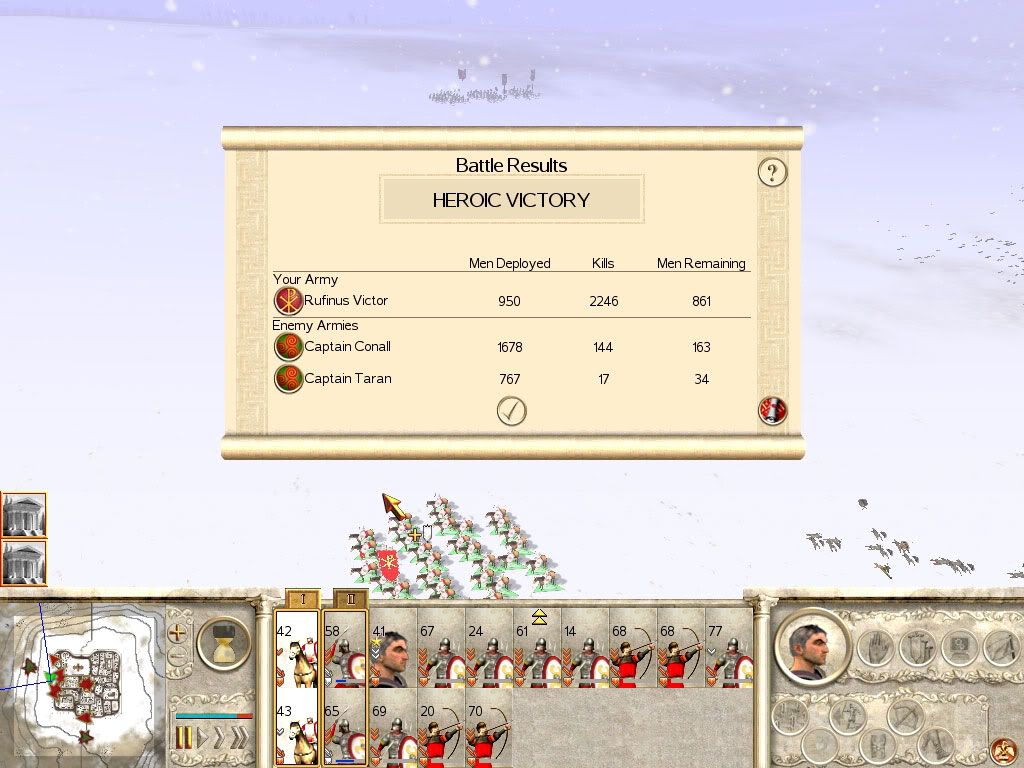








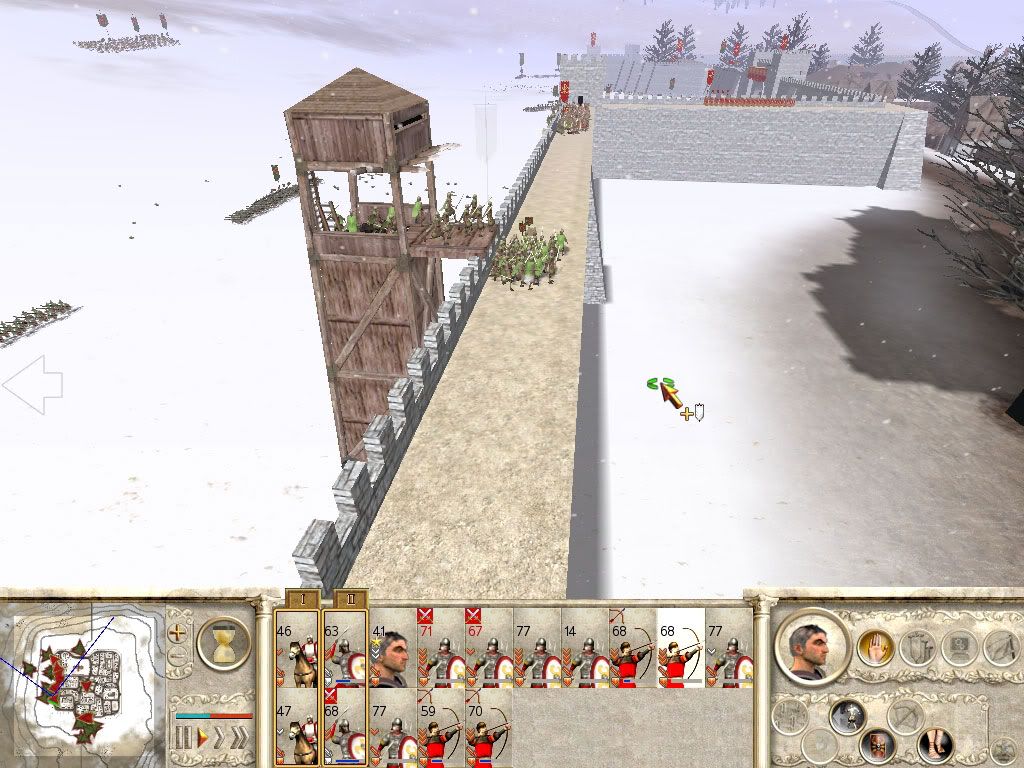
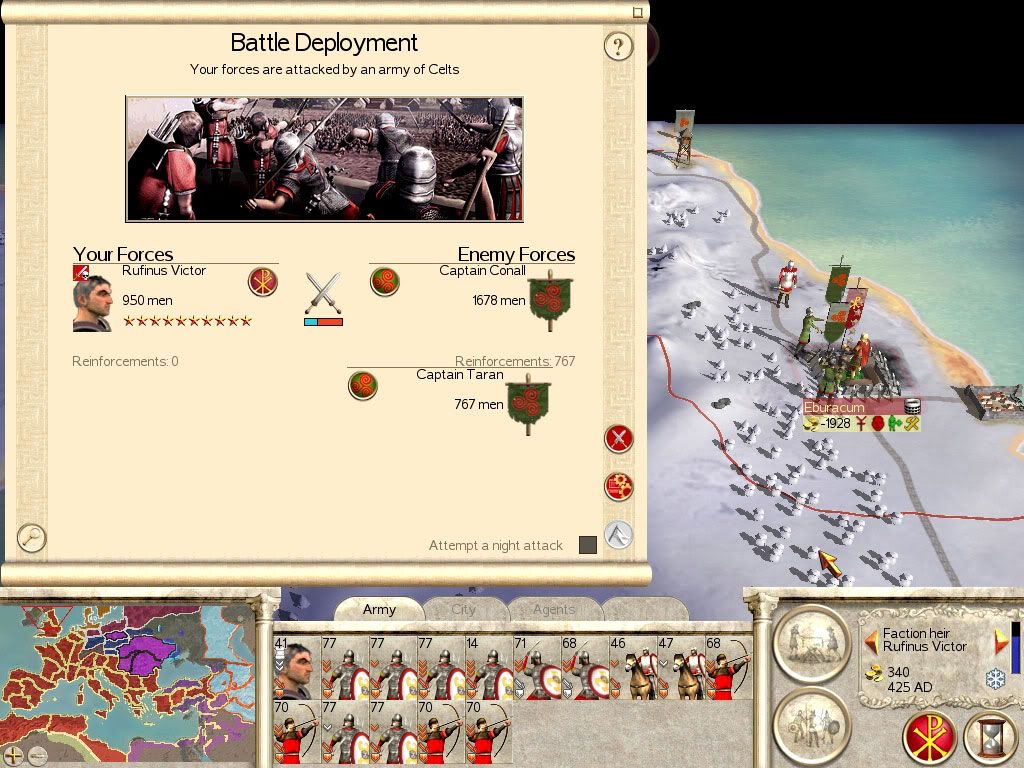
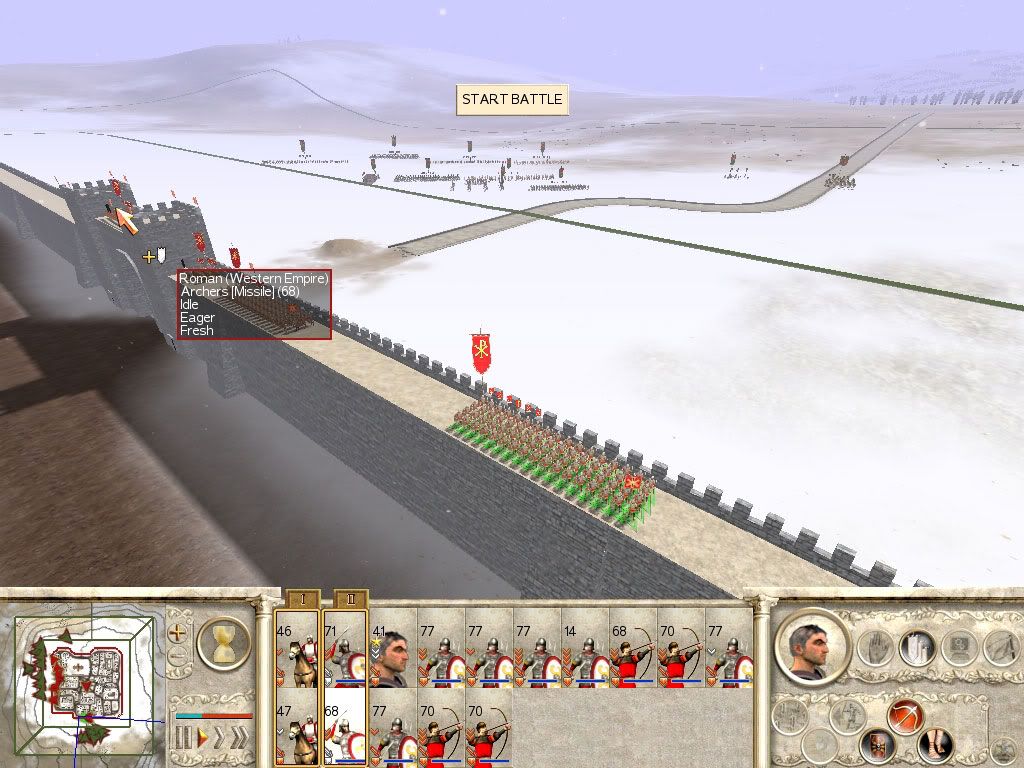
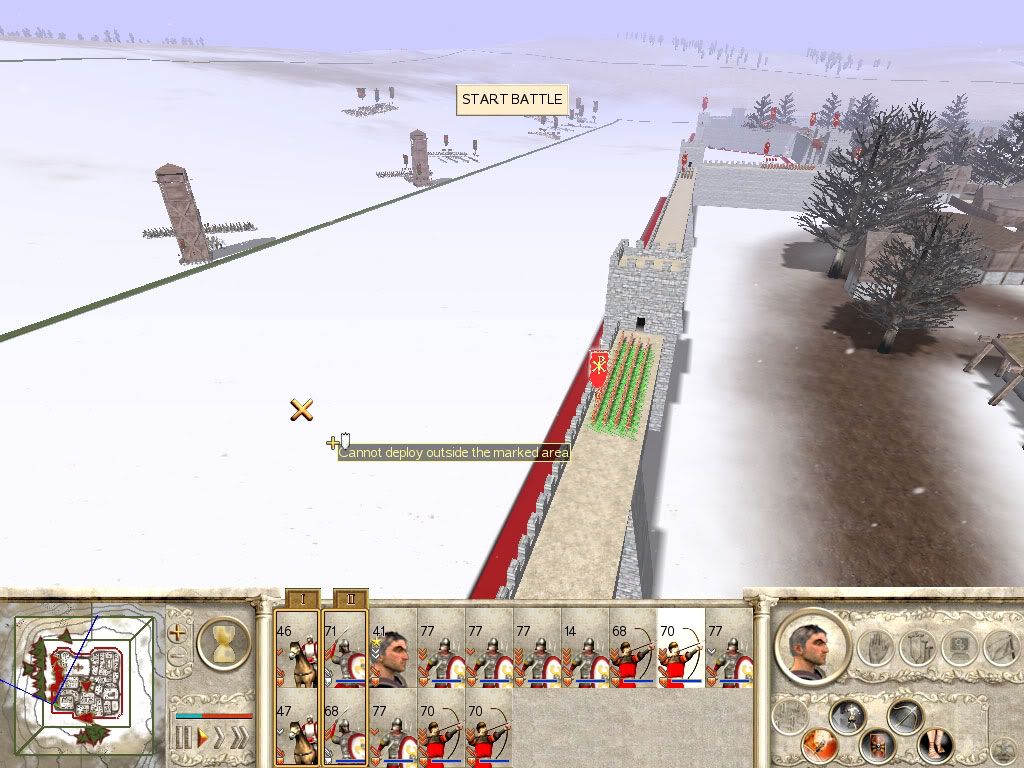
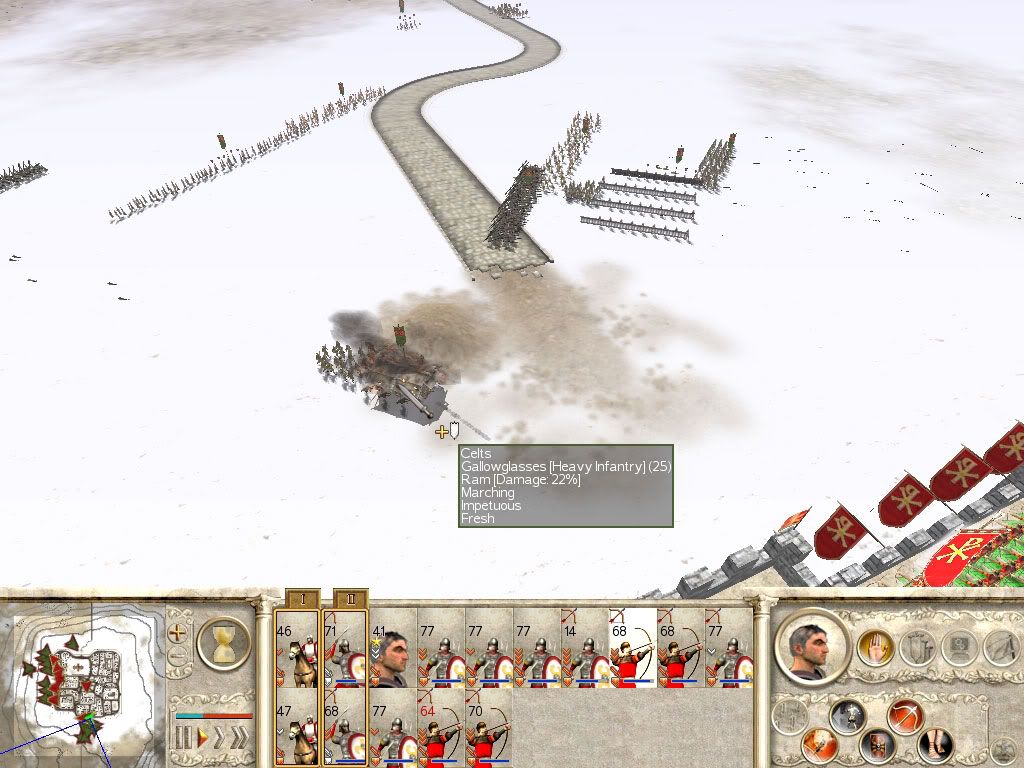
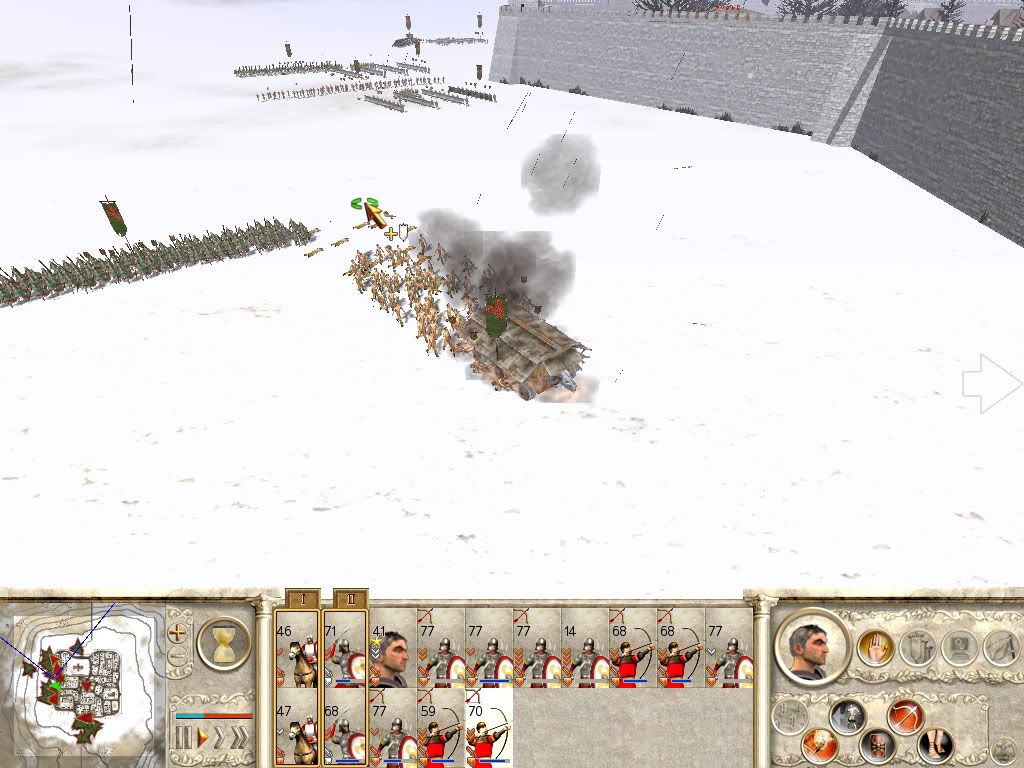
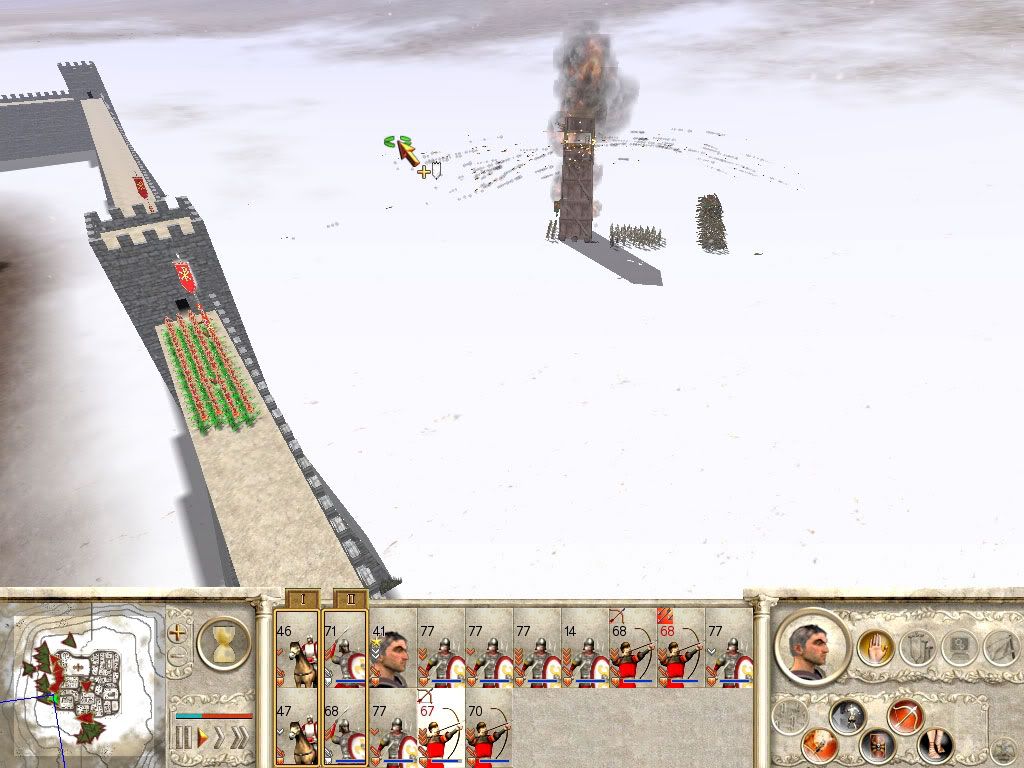
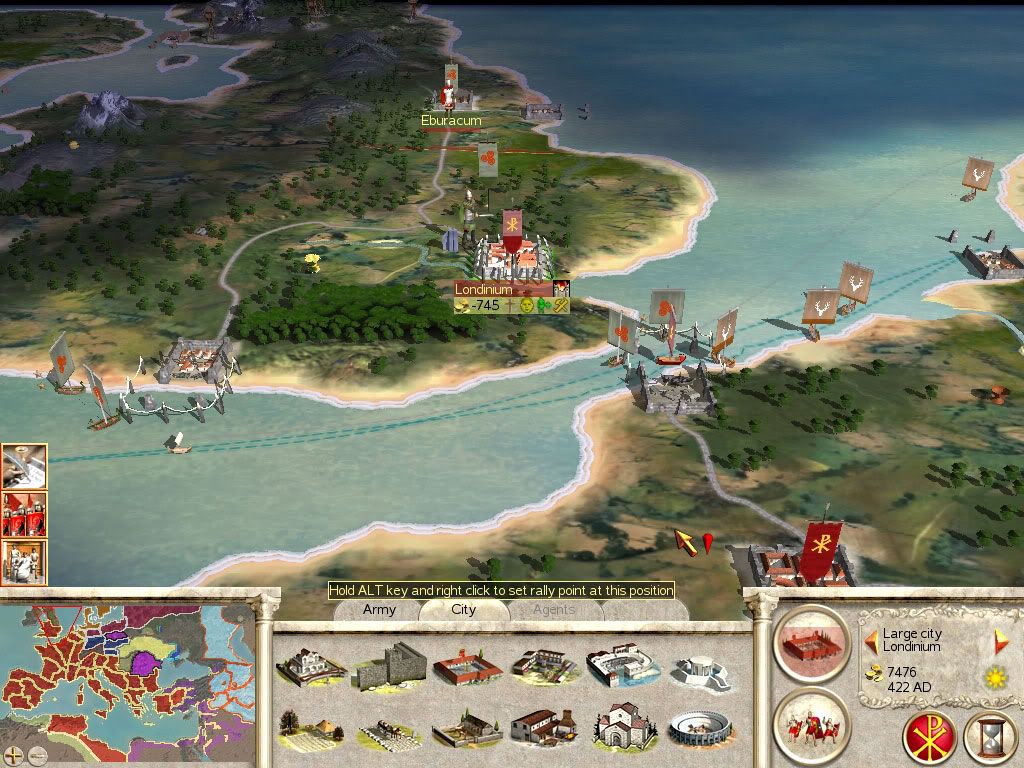
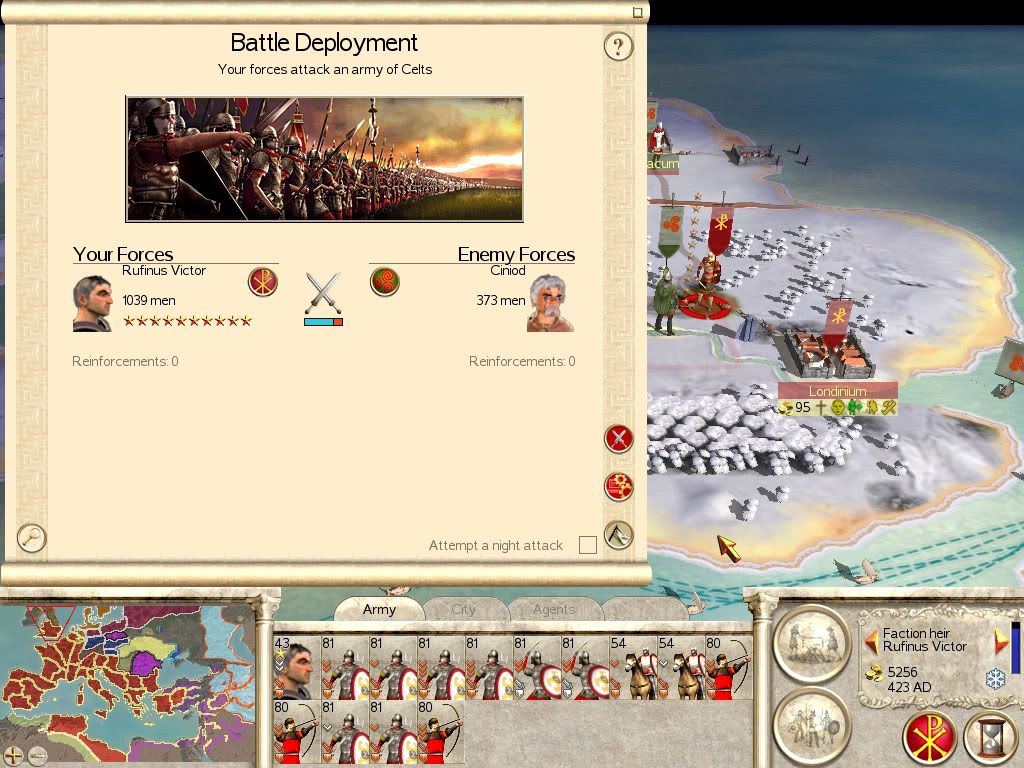
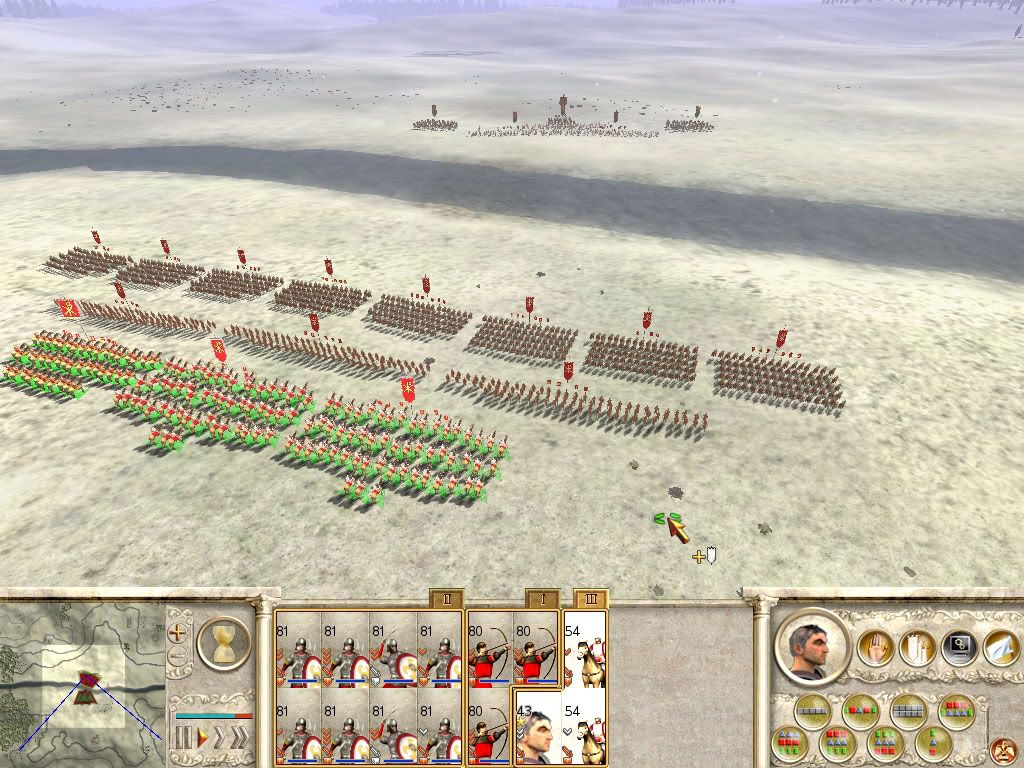
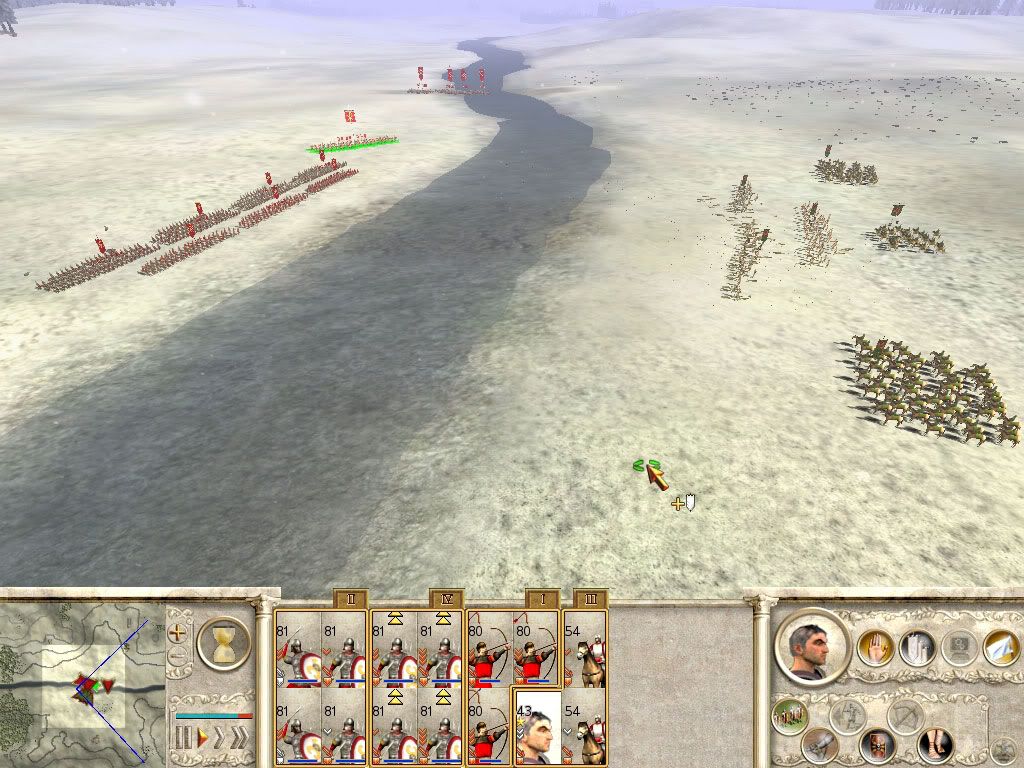
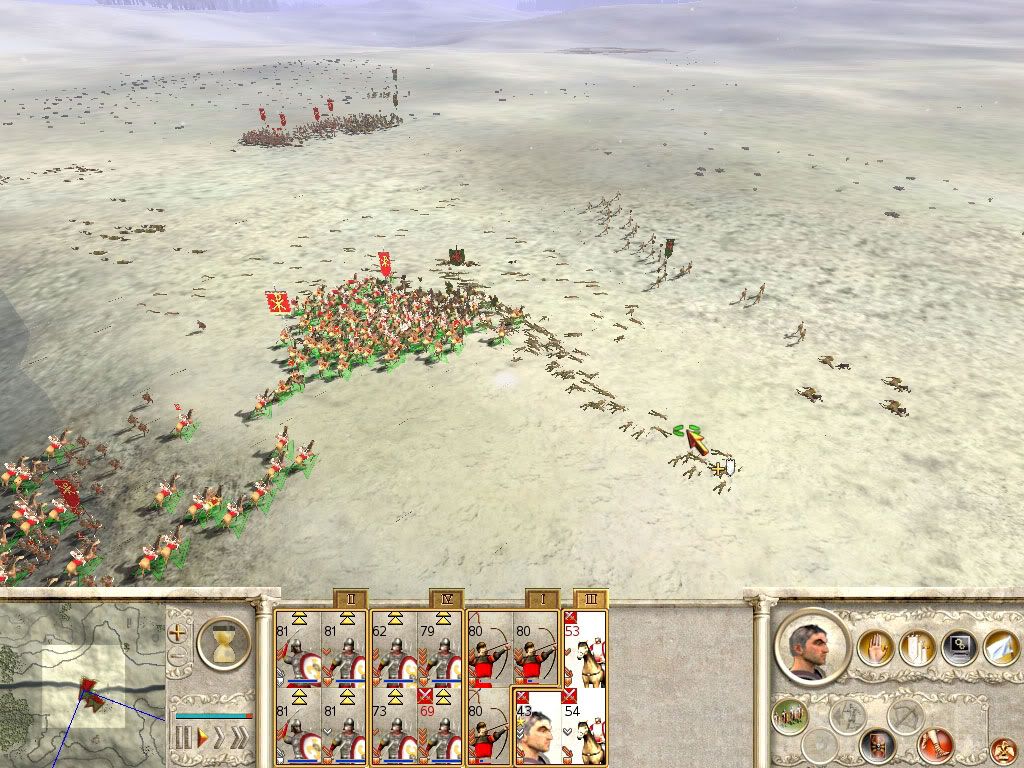
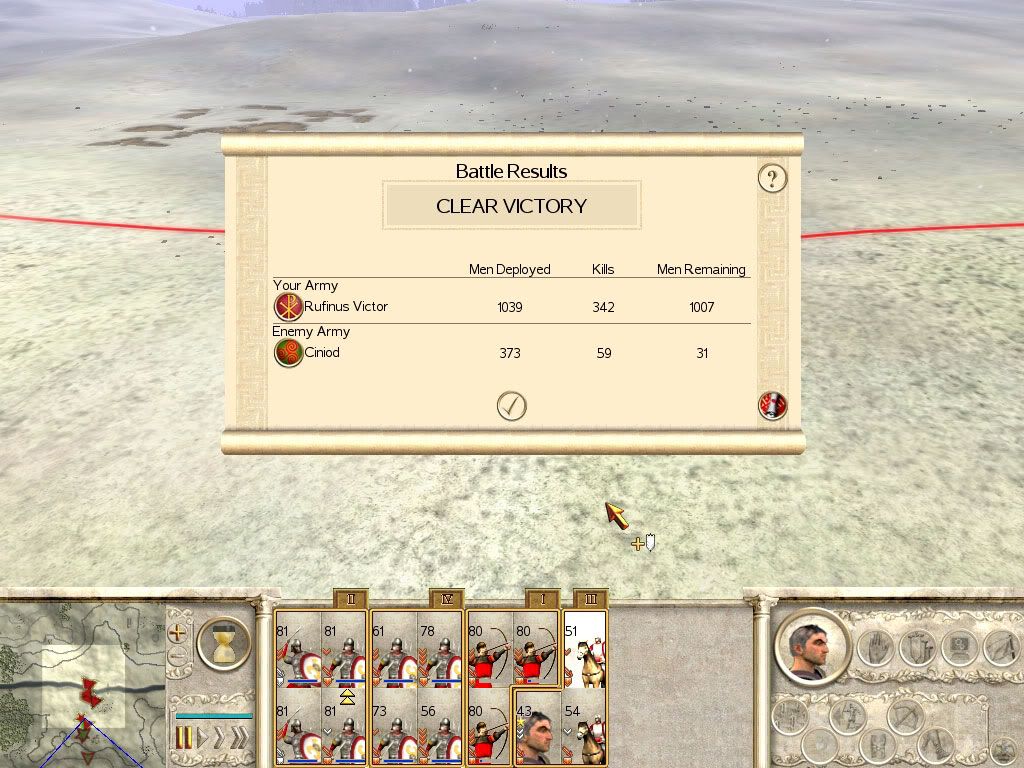
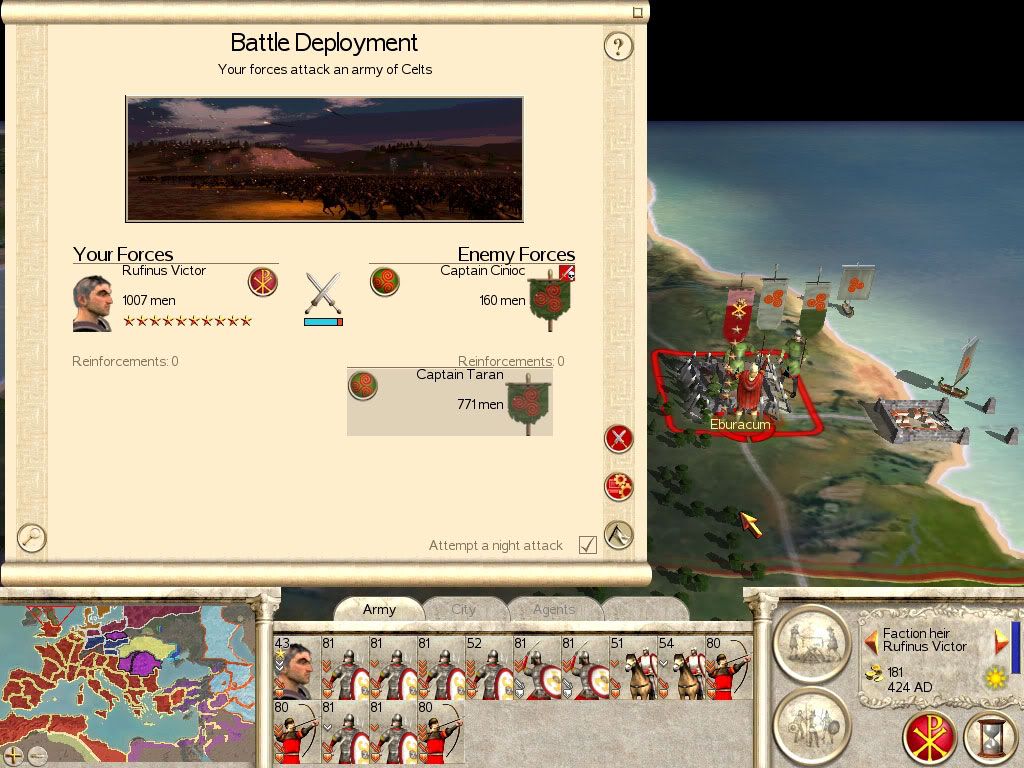
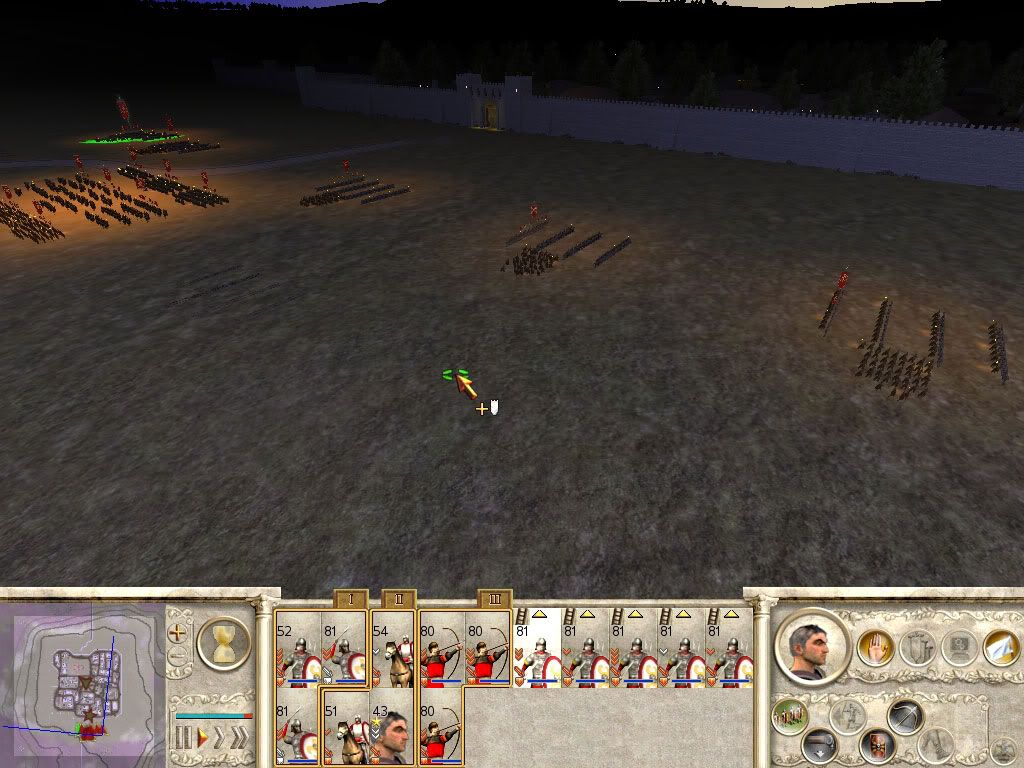
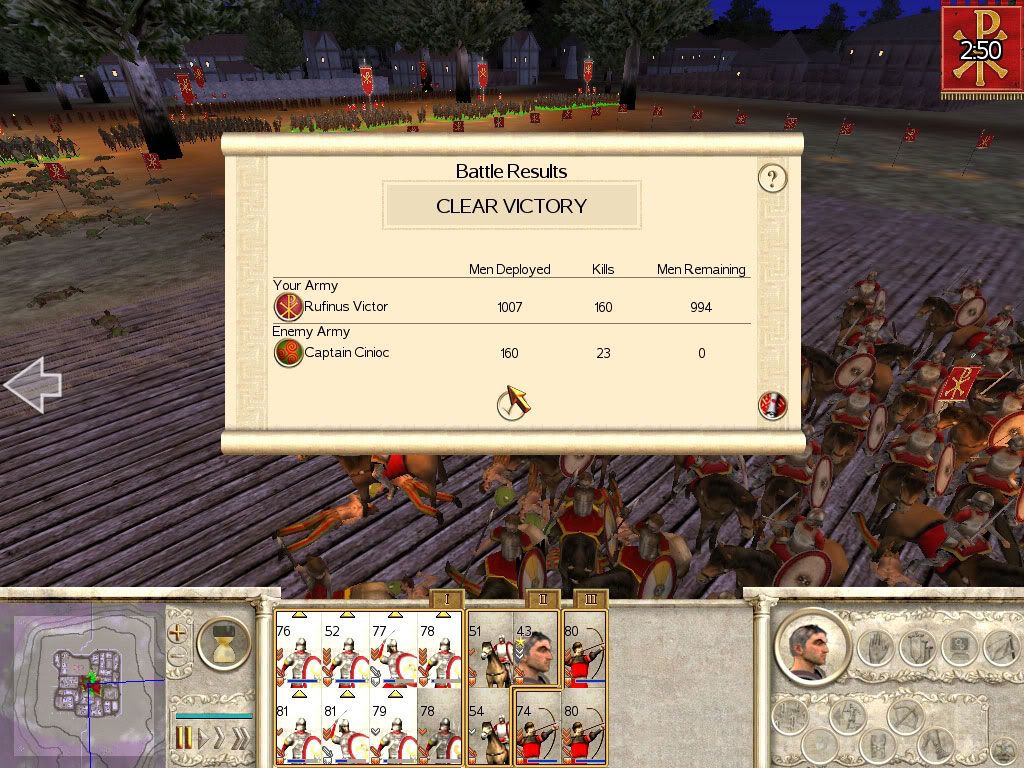
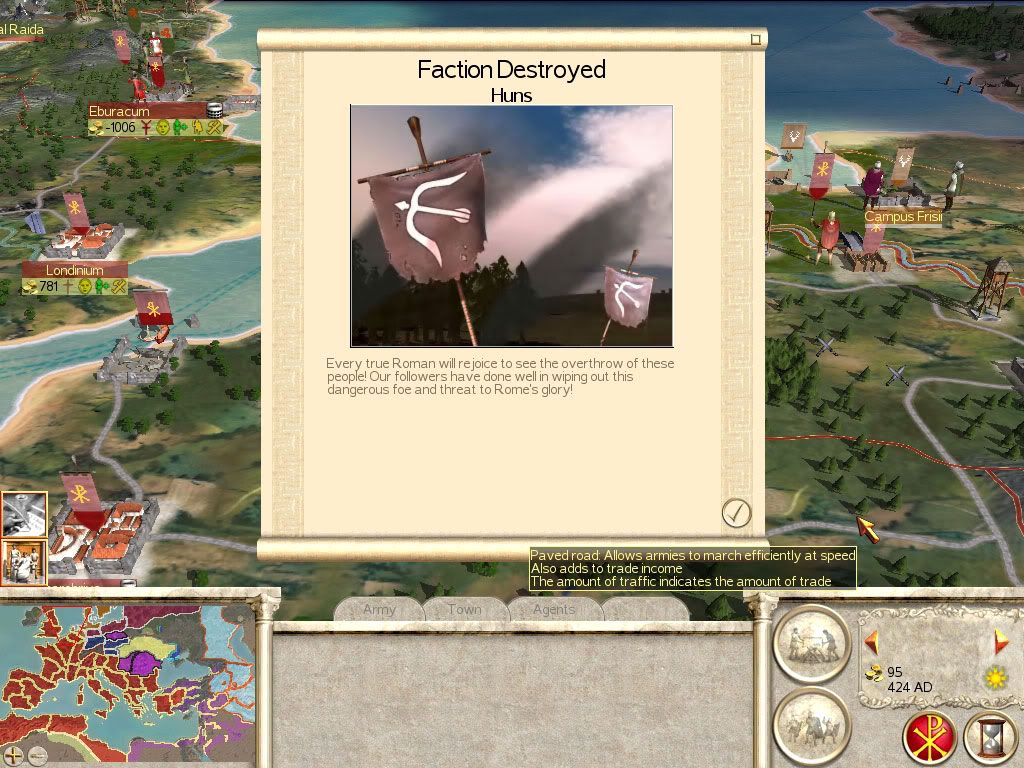
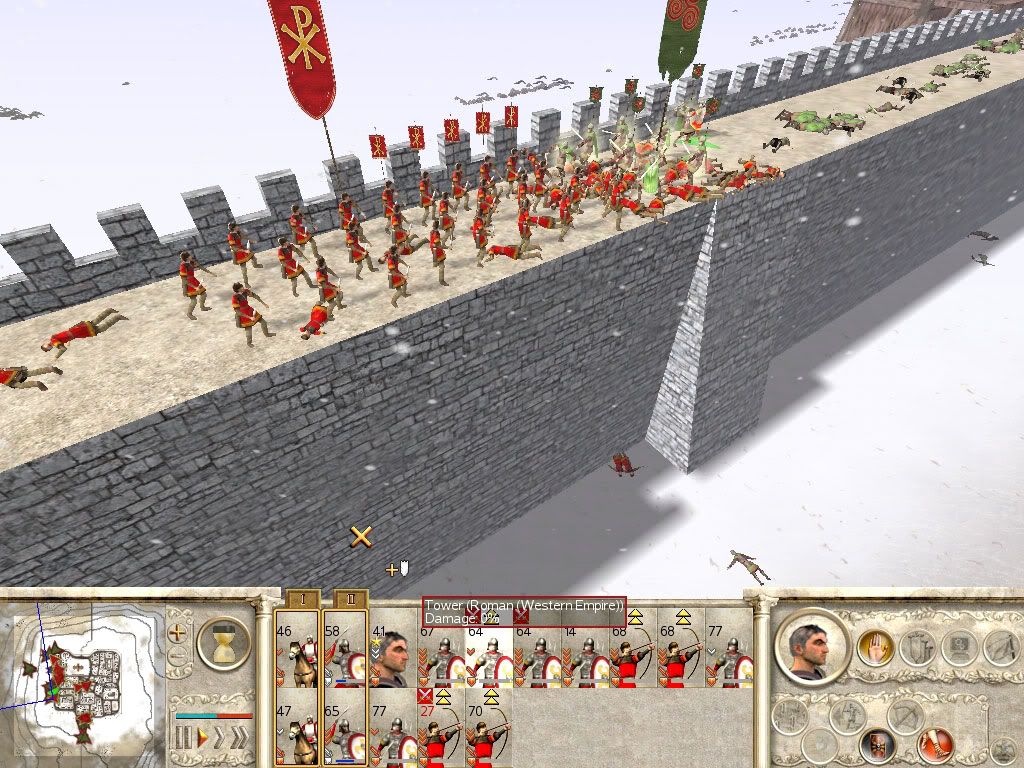
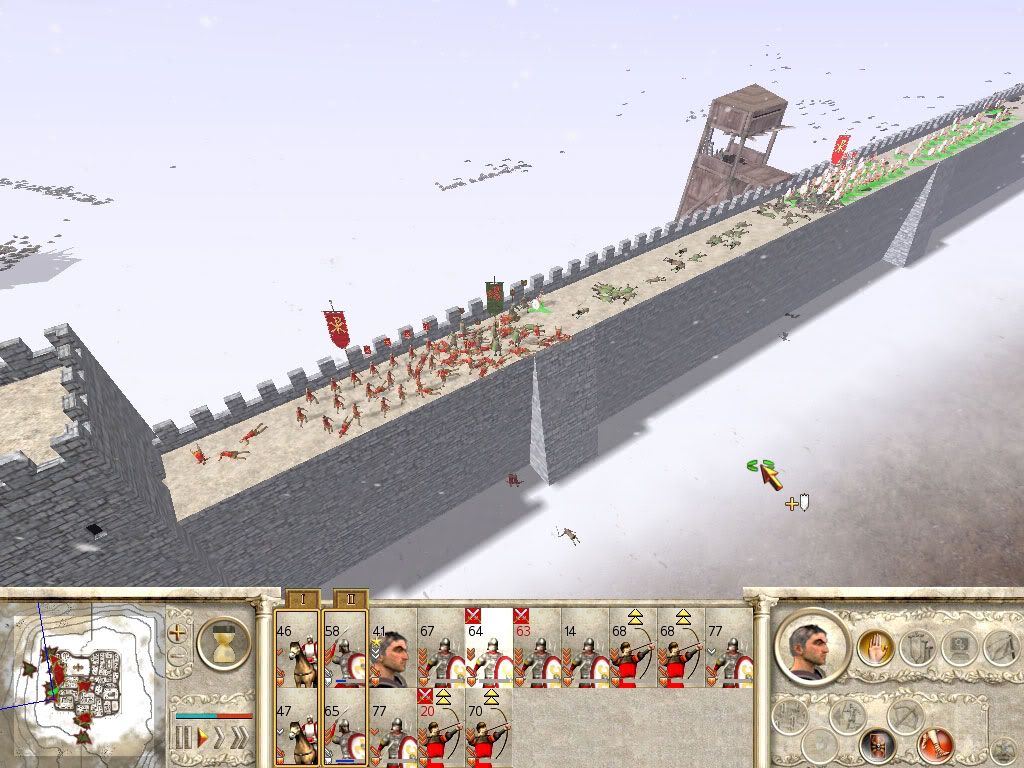
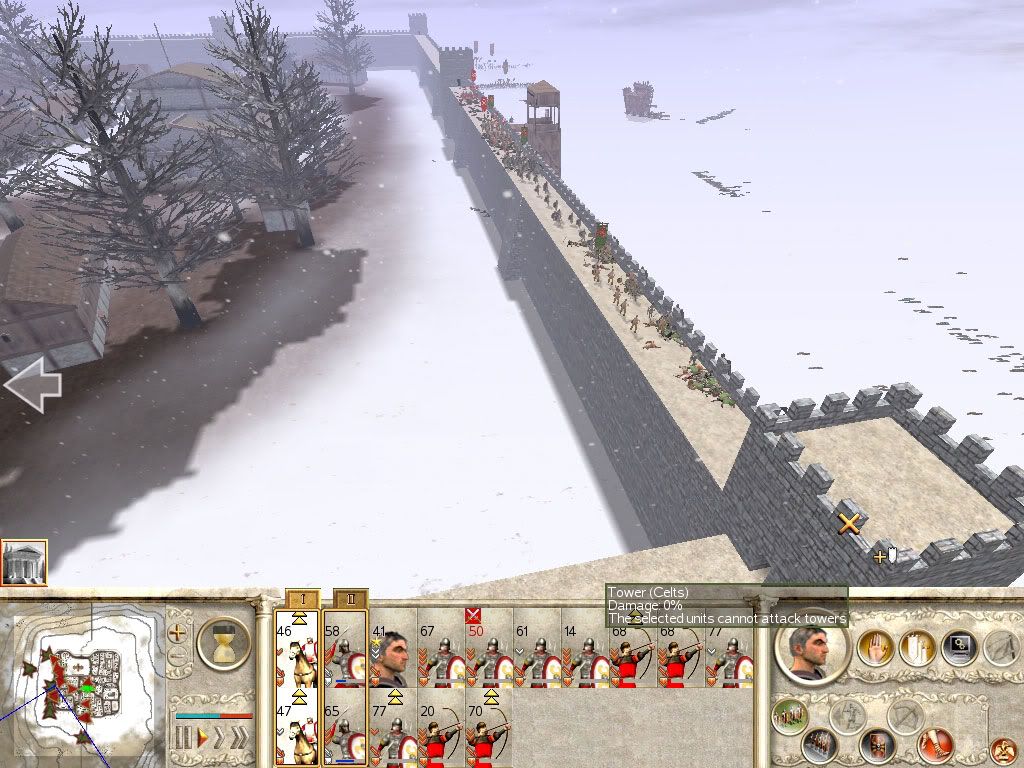
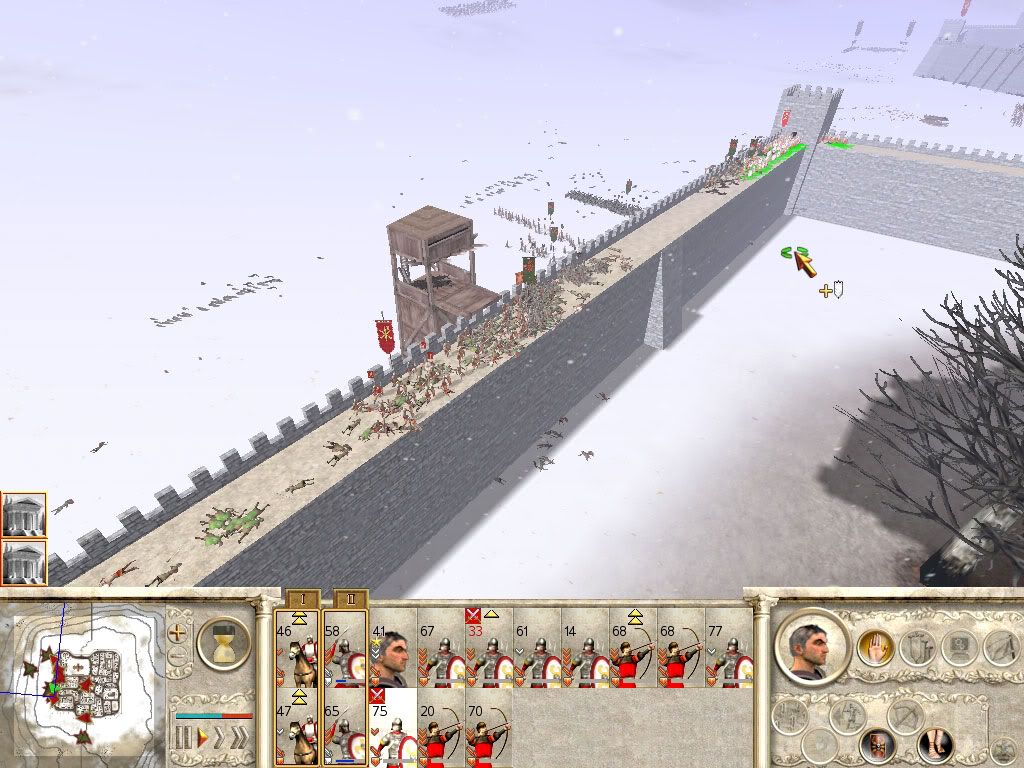
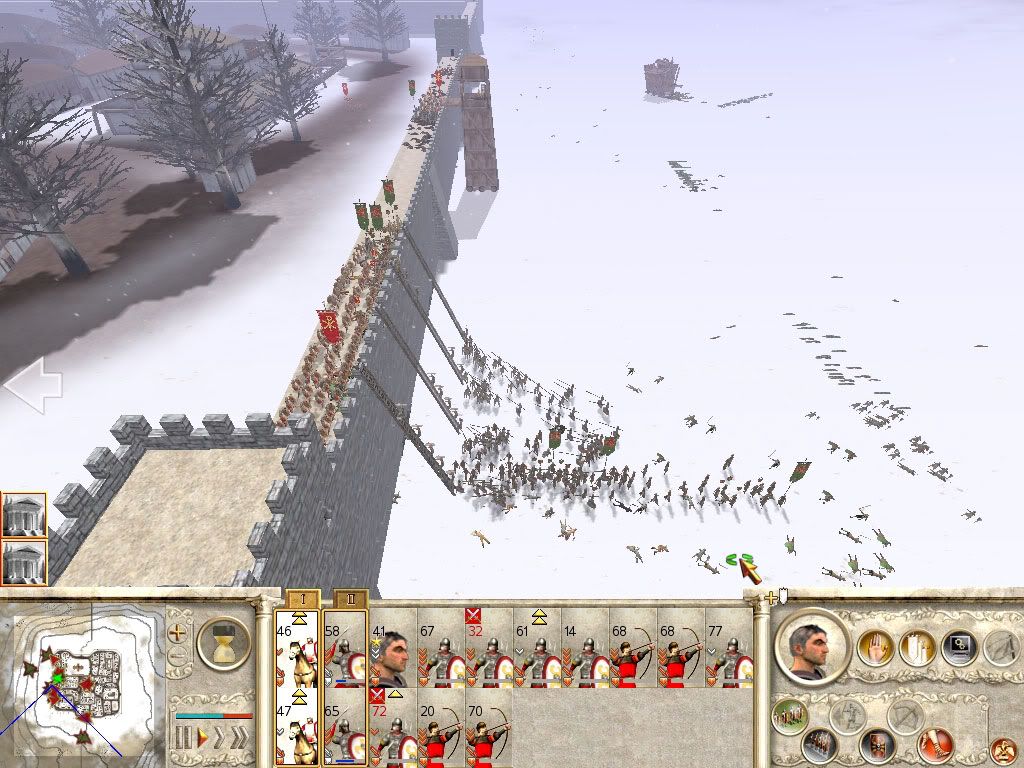
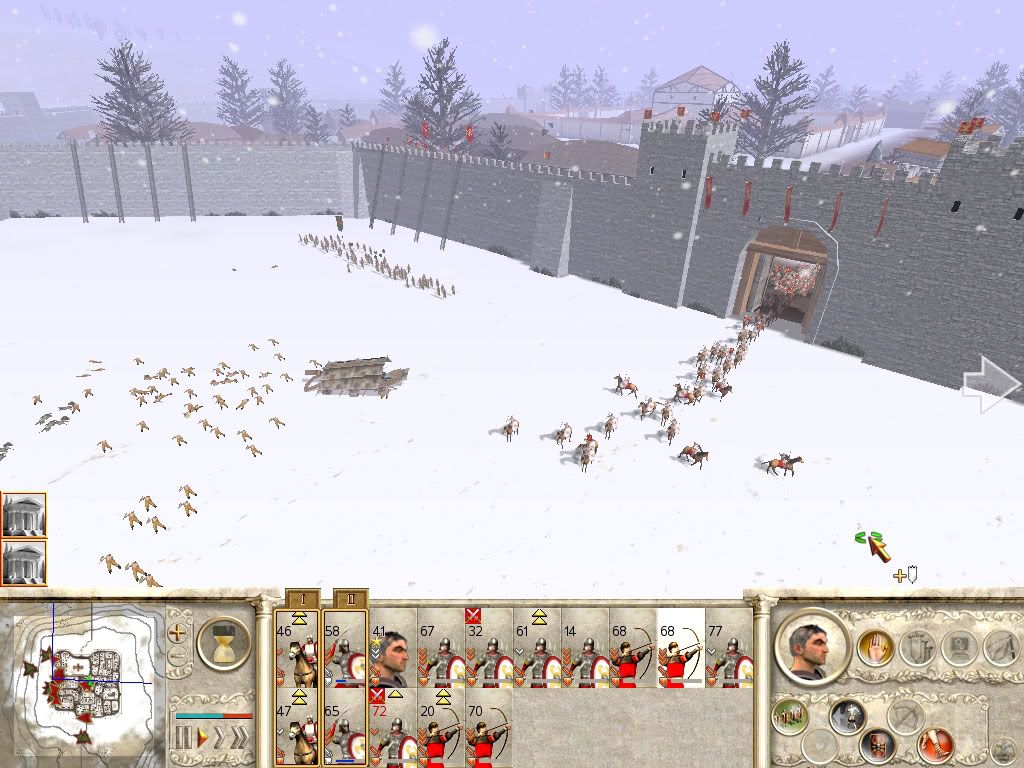
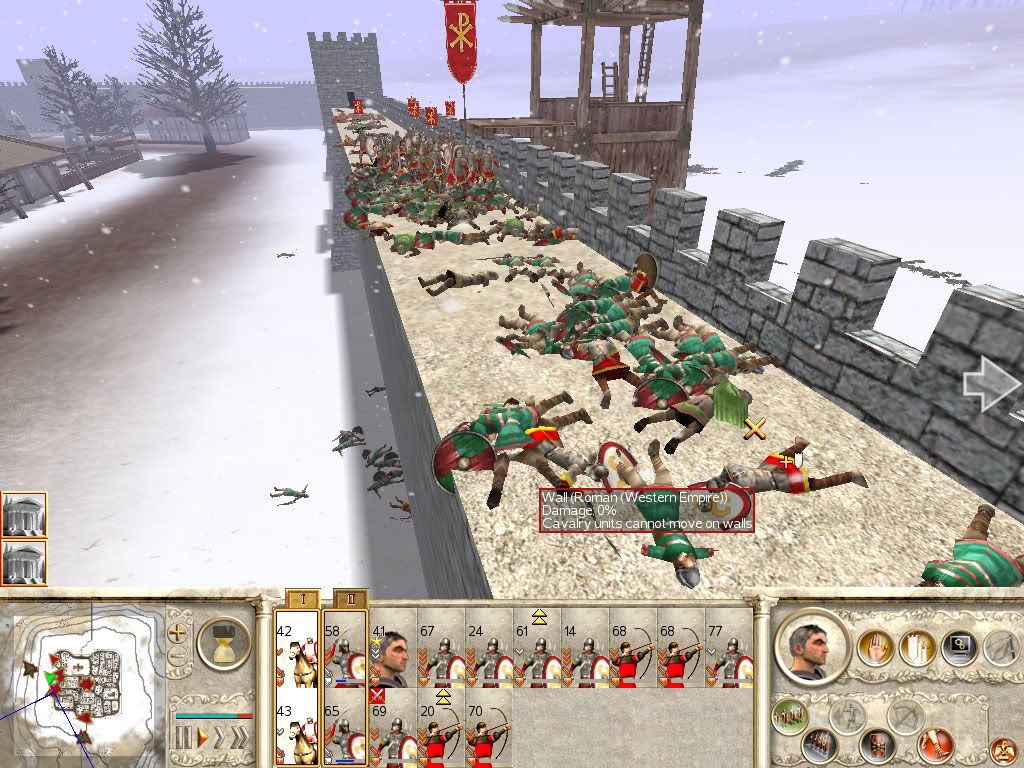

 Reply With Quote
Reply With Quote
Bookmarks